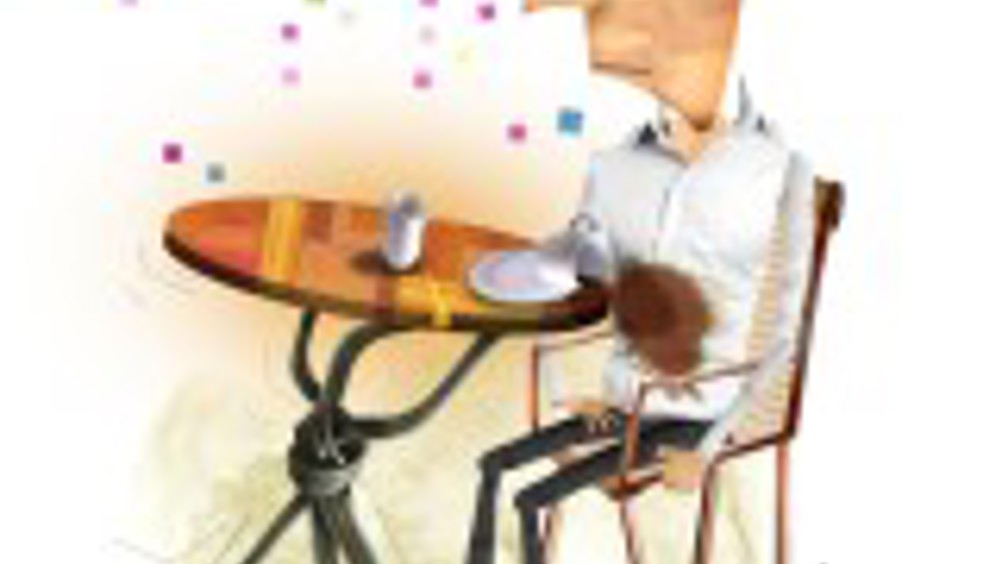Rocky foundations
There is nothing that provides a greater impression of tackiness in a restaurant than tables that rock slightly

Now that global warming is encouraging Continental-style outdoor dining and coffee drinking in the UK, this failure to have your feet firmly on the ground is a growing problem with those small metal tables that are favoured by such establishments.
The problems stem not so much from a failure to engineer the tables properly so that they have legs of equal length, or are securely mounted on flat bases, but because even the best laid pavements are slightly uneven. Tables that have four legs tend to sit on three and, when the weight distribution on the top changes, they tilt about two legs, so that the third leg in contact with the ground alters from being that on one side to the one in the opposite corner. With tables supported on flat metal bases, contact points can be anywhere, but the problem is the same, in that there is an annoying tap when the table tilts, usually accompanied by the slopping of coffee in cups or drinks in glasses.
The challenge
The challenge this month is to come up with a simple, unobtrusive and low-cost way of keeping all four legs, or all parts of a flat base on an outdoor café table, permanently in contact with the ground. Electronically controlled actuators for legs are far too expensive.
Sprung leg suspensions are both too expensive and likely to result in a degree of compliance that can be expected to result in soup ending up the laps of diners. Moving to three-legged tables is also not an acceptable solution, on account of the reduced stability of these, relative to four-legged or flat base supports.
Eureka readers may well agree that the solution offered below is absurdly simple, very low cost and quite ingenious. Nonetheless, it required the determined efforts of a reputable engineering and building component company in Japan – in response to a request from a major chain of restaurants in that country – to come up with the answer. Now it is being offered for sale worldwide and, indeed, other uses may also be found.
For those without access to the web, the solution will be described fully in our July issue. You are welcome to come with alternative solutions.
Solution
The solution to the May 2007 challenge to stabilise outdoor café tables comes from the Japanese company Sugatsune Kogyo.
It exists in the form of a table leg foot, which incorporates a small piston resting on a pad of gel. It is thus slightly, but not too greatly, compliant. The piston is made of plastic, moulded round a steel bolt head whose shank can be screwed into or bolted to the end of a table leg or flat table base. According to the UK operation director, Ryosuke Obinata, a table weighing 18 to 36kg requires 6 pads; one weighing 15 to 30kg, 5 pads; and one weighing 12 to 24kg, 4 pads. He said it, "Works fine within the temperature range in the UK and that the price FOB Japan works out at about 80p to 90p, translating to a likely UK sale price of around £2.










